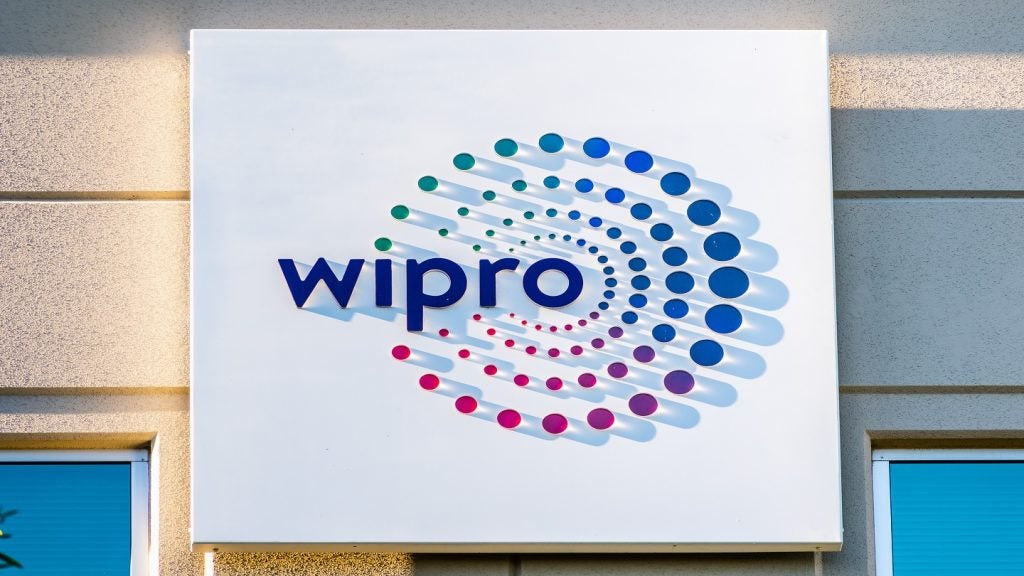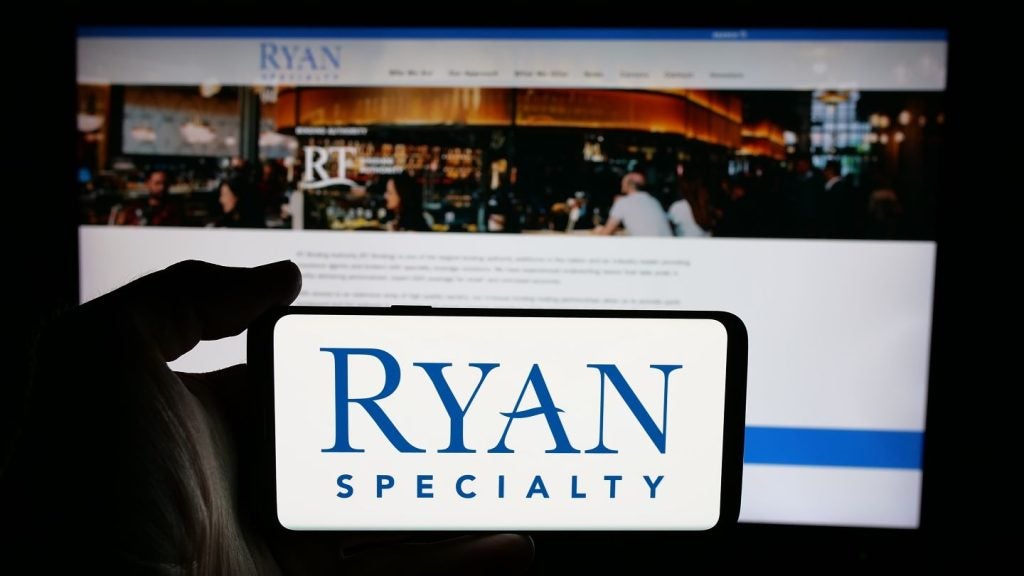Life Insurance International lists the top five terms tweeted on insurtech in Q4 2021, based on data from GlobalData’s Insurance Influencer Platform.
The top trends are the most mentioned terms or concepts among Twitter discussions of more than 150 insurance experts tracked by GlobalData’s Insurance Influencer platform during the fourth quarter (Q4) of 2021.
1. Fintech and Financial Technology – 6,983 mentions
Technology revamping the insurance industry, insurers using open application programming interfaces (APIs), and the insurance industry focusing on the younger generation through technology-based offerings were some of the popular discussions in Q4 2021.
Florian Graillot, founding partner at venture capital and private equity firm astoryaVC, shared an article on the growth of the insurtech industry, which is projected to reach $11.94bn in value by 2027. The European insurtech industry has grown steadily in 2021 with several insurtech companies moving towards unicorn status and new players expected to enter the sector. Technologies such as artificial intelligence (AI) and data analytics have played a key role in the growth of the industry. Replacing old systems with the latest IT solutions enables insurers to increase client onboarding, the article highlighted.
In another tweet, Andreas Staub, head of corporate development and digital transformation at banking firm Raiffeisen Switzerland, shared an article on insurers increasingly adopting digital technologies to provide tailored policies to clients. Open insurance solutions that use open APIs to exchange data and services with other companies such as financial institutions and other insurtechs can help insurers in risk management and develop personalised policies. Open insurance offers a promising solution for legacy insurers who are struggling with their digital transformation efforts. Open APIs also enable insurance companies to market their goods and services faster while exploring new revenue prospects and product offerings, the article noted.
Minh Q. Tran, strategic advisor at technology company AREVO, shared an article on the modernisation of insurance for the younger generation of consumers. New buyers will include millennials and workers who require insurance for various needs such as business and marriage, according to Amerson Lin, CEO of financial services company Gigacover. Lin added that platforms such as TikTok can be used to sell insurance integrating bite-sized insurance in diverse purchases to the young people who understand and use streaming and subscription services. Insurers can also deploy digital technologies to maintain low prices allowing them to offer services to a large number of customers in the long run, the article highlighted.
Furthermore, market trends vary from one country to another in terms of insurance coverage and consumer knowledge. Singapore, for example, has a high level of insurance adoption and knowledge compared to Indonesia and the Philippines. Singapore runs a number of government social programmes including the Central Provident Fund, which is a mandatory investment and pension plan for its people, as well as health insurance schemes such as MediShield Life. The insurance protection needs will vary as a country goes through various phases of digital transformation such as online commerce and remote work, the article highlighted.
2. Startup Company and Startups – 2,924 mentions
The top insurtech start-ups in Europe, German insurtech start-up Getsafe raising $63m in a Series B round, and Singapore-based insurtech start-up Surer raising $1m in a seed round were some of the popular discussions in the fourth quarter.
Rick Huckstep, a freelancer, shared an article on the top insurtech start-ups in Europe compiled by market intelligence platform Sønr and insurtech news and information platform InsurTech Insights. The list features start-ups that focus on insurance innovations such as the use of distribution techniques, enabling usage-based insurance policies, and delivering services to the underserved. Insurtech start-up Amodo, for example, offers usage-based solutions by boosting consumer engagement. Similarly, Blocksure uses blockchain technology to provide on-demand flexible policies, the article detailed.
Spiros Margaris, board member at venture capital firm Margaris Ventures, shared an article on Getsafe raising $63m in a Series B round. The company previously raised $30m in the first Series B round bringing the total funds raised to $93m. The funding round included participation from various venture capital firms including Earlybird, Abacon Capital, CommerzVentures and insurance company Swiss Re. The start-up’s debut offering was a digital-only home contents insurance policy. Its direct-to-consumer model allows the company to market its products to a large number of first-time insurance purchasers, the article highlighted. The start-up has about 225,000 clients in Germany and 25,000 in the UK and plans to extend its services to other countries such as France, Spain, Italy, and Austria in the near future.
In another tweet, Marc-Roger Gagné, a privacy and data security advocate, shared an article on Surer raising $1m in a seed round to expand its platform in Asia. Investors who participated in the seed round included investment firm Kistefos, and venture capital firm Markel Digital Investment. The start-up uses cloud-based platform allowing insurers and intermediaries to save time, focus on their clients, and expand their business. The company was founded by Gordon Tay, Renfred Tay, and Derren Teo in September 2020 with the goal of resolving the $1.7tn general insurance industry’s massive demand-supply imbalance. Surer plans to expand into other regions such as Malaysia, Hong Kong and Taiwan, the article noted.
3. Artificial Intelligence (AI) – 1,968 mentions
AI revolutionising the insurance industry with usage-based insurance (UBI), a survey revealing that only 13% of banking and insurance companies use AI, and insurtech company Tractable providing visual AI for damage appraisals were some of the popular discussions on AI in the last quarter.
Xavier Gomez, founder and chief operating officer at technology services provider INVYO, shared an article on how AI is transforming the insurance industry with UBI. AI can aid both insurance firms and consumers by analysing the huge among of data generated by UBI and Internet of Things (IoT) solutions. Insurers can benefit from AI’s assessment capabilities, which helps to make more accurate forecasts regarding risk levels thereby allowing premiums to be re-evaluated. The challenges of adopting AI-powered UBI include client interests and regulatory constraints. The lack of understanding of the technology can result in the establishment of unduly broad regulations, while consumer usage will depend on ease of use and understanding of the technological advantages offered by AI-powered UBI, the article highlighted.
AI was also discussed by Ronald van Loon, CEO of the Intelligent World, an influencer network that connects businesses and experts to audiences, who shared an article on investment firm Temasek’s survey that examined the use of AI by insurance and financial firms. The survey included 39 decision-makers from banks and insurance businesses in the US, Europe, Singapore, and Hong Kong. The findings of the survey revealed that 13% of them fully adopted AI, and 31% were testing the waters in AI-driven solutions, while more than half of them utilised AI in certain areas but did not fully exploit its capabilities. Furthermore, two-thirds of the companies were more focused on machine learning and advanced statistical algorithms, while one-third used advanced AI technologies such as deep learning.
In another tweet, Mike de Waal, CEO of AI-driven group insurance procurement technology platform Global IQX, shared an article on Tractable providing visual AI for damage appraisals, which helps in generating a quicker and more effective evaluation of an accident. The company’s AI service known as AI Subro can help vehicle insurers recover losses and reduce loss ratios. A combination of photos and video are provided by the AI service to give a faster and more accurate evaluation of the accident. The service can assist US car insurers and drivers with a variety of subrogation activities so that the process can be completed quickly and precisely by providing damage recovery and avoiding disputes with other insurers and third parties. It can also speed up the rehabilitation process with the aid of AI as soon as an accident occurs.
4. Cybersecurity – 533 mentions
The rise of cyberattacks in the insurance industry, cyber insurance expected to play a bigger role with the increased use of AI, and the multiple options available for cyber insurance companies to grow their business were some of the popular discussions on cybersecurity in Q4 2021.
Spiros Margaris shared an article on the rise of cyberattacks in the insurance industry. The increase in remote work amid the Covid-19 pandemic increased their digital footprints, providing an opportunity for cybercriminals to gain access to organisations through home Wi-Fi networks and placing small and mid-size businesses at risk. Unprotected Wi-Fi networks posed a challenge for security experts as more people were working online during the pandemic. Boards and senior management have become more conscious of cyber threats, which has resulted in the increased adoption of cyber insurance. Insurance companies are using AI-powered techniques to analyse the risks associated with cyber events, improving their underwriting process and allowing for more precise risk selection and pricing, the article noted.
Cybersecurity was also discussed by Andreas Staub who shared an article on how cyber insurance will become more relevant in the future as AI begins to proliferate across businesses and sectors. Cyberattacks are expected to become more widespread as hackers use AI to launch highly efficient and scalable attacks. Furthermore, cyberattacks are expected to cause more financial harm and disrupt productivity. AI is also being used by cybersecurity organisations and professionals to develop threat detection and elimination technologies, providing a promising solution to addressing cyberattacks.
In another tweet, Florian Graillot shared an article on the various options that cyber insurance companies have to scale up their operations in digital protection. Insurtech companies have the choice to remain independent, be acquired, or develop collaborations with conventional insurance companies, according to the article. Furthermore, investor interest in cyber insurance companies due to the growing number of cyber threats is expected to lead to the launch of more insurtech companies. Insurtech firms globally raised $7.38bn in 2021, a $268m increase over the $7.12bn raised in 2020, advisory, broking and solutions company Willis Towers Watson reported. The insurance industry is also expected to witness increased collaboration between traditional insurance companies and insurtechs to address cyber insurance needs, according to the article.
5. Big data – 507 mentions
Data companies projected to enter the insurance industry in 2022 and the rise in demand for technology company Codafication’s solutions due to increased focus on data security were some of the trending discussions on big data in the last quarter.
Mike de Waal shared an article on data companies projected to enter the insurance industry in 2022. Datasets are expected to enable property and casualty (P&C) insurers to predict risk more efficiently. Insurers will be required to adjust their offerings to meet the changing needs of their clients as insurance coverage evolves with the rise of various markets such as cyber and climate. Data companies such as Google partnering with state-owned businesses can provide data resources and sector-specific information to enable insurers to build their customer base. Data companies can also offer data insights that can help insurance companies to overtake competitors, the article noted.
Big Data was also discussed by Dr. Robin Kiera, CEO of a marketing agency Digitalscouting, in an article on the increased focus of data security boosting the need for technology company Codafication’s services. The company’s virtual assist claims system, for example, witnessed increased adoption by insurance companies during the Covid-19 pandemic as it helped them in processing claims remotely. Companies such as Suncorp, IAG, Youi, and Aon have benefitted from the technology by performing claims assessments using streaming and video screening. Codafication plans to make its technology available globally, particularly in Singapore and Europe, where it will collaborate with government agencies, and asset management organisations, the article noted.







